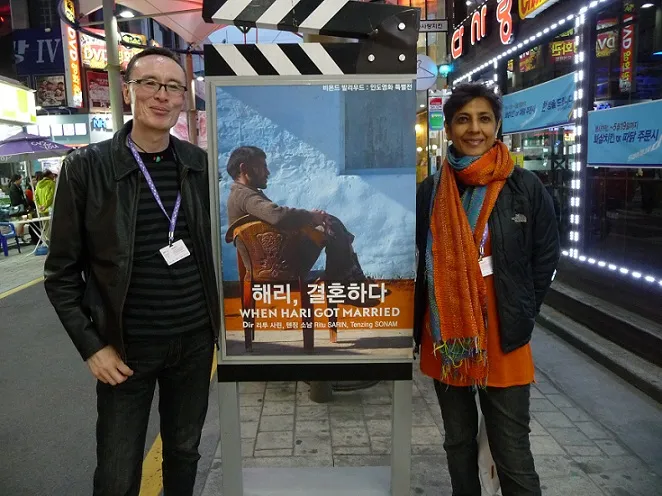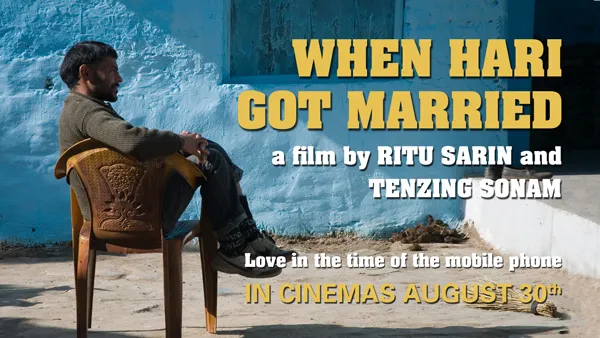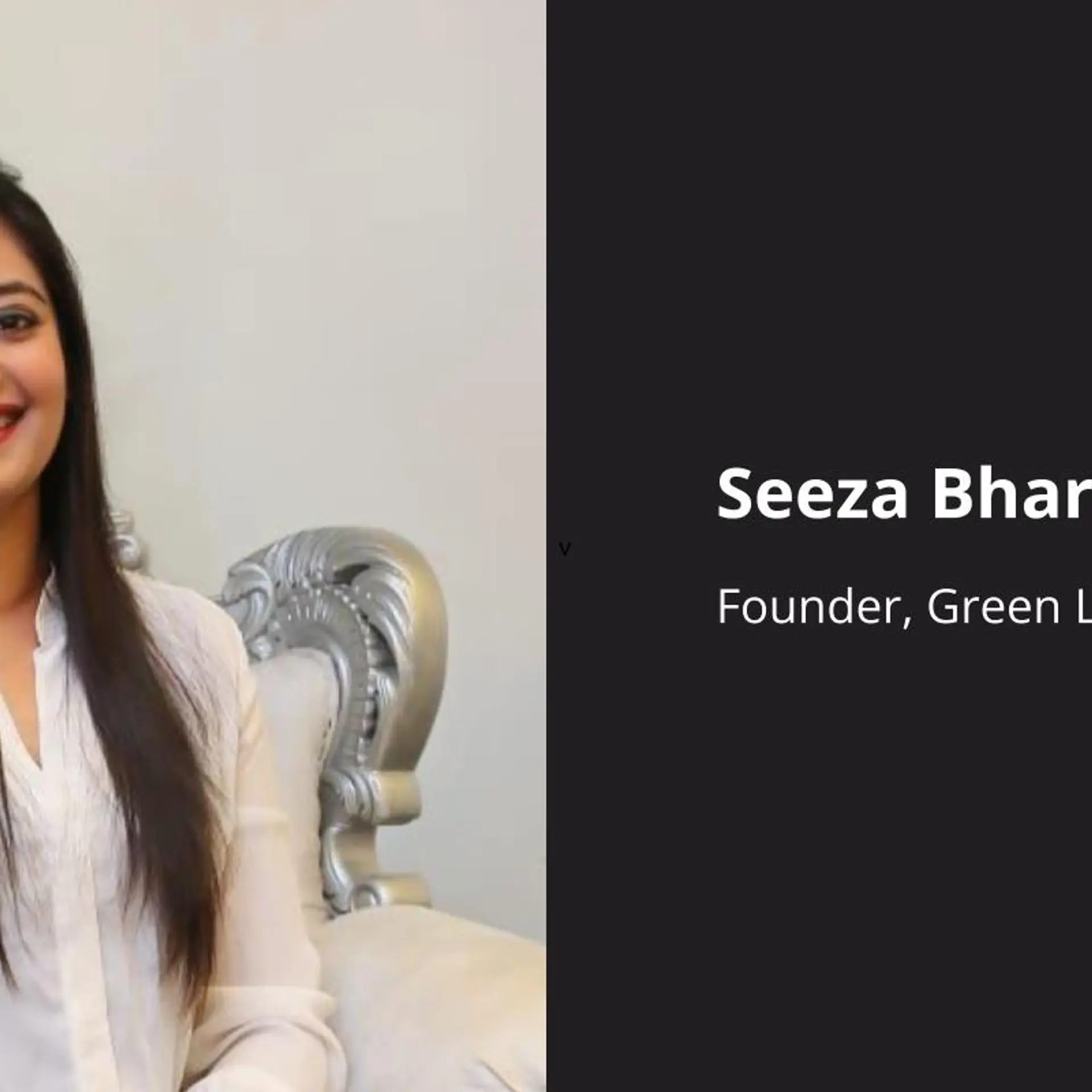Three decades of film making- With Ritu Sarin and Tenzing Sonam, founders of White Crane Films
Ritu Sarin and Tenzing Sonam go back a long way! They first met as students in Delhi University where they became good friends and kept in touch even after going different ways. After a couple of years, their paths crossed again in the early 80s, this time in the San Francisco Bay Area. Tenzing was studying broadcast journalism at the University of California in Berkeley while Ritu was doing an MFA in Film and Video.

It was here that the duo worked on their first film together, The New Puritans: The Sikhs of Yuba City (1985), which was also their joint thesis project. The film did well and was broadcast on national PBS. They started going out while making the film and have been together ever since, sharing their personal and professional lives.
Here, we get in touch with the duo to chart out their journey and learn about their latest launch- When Hari Got Married:
JM: Take us through the journey of film making. What were some of the big breaks along the way?
Tenzing: We moved to London in 1986 after finishing our studies in the US. We had been hired to work for the Meridian Trust, a film and video archive specializing in Buddhist and Tibetan subjects. As part of our job, we were fortunate to document the Dalai Lama's travels in Europe, the former Soviet Union, the US and Norway (when he received the Nobel Peace Prize). In those days, the Dalai Lama was not as famous as he is today, so we were blessed to be able to share some very intimate moments with him.
In 1991, we started our own independent film company, White Crane Films, and made our first feature documentary, The Reincarnation of Khensur Rinpoche (1991). The film showed at all the major international documentary festivals, was broadcast throughout the world and even had a successful theatrical release in the USA, Austria, Germany and Switzerland. Subsequently, we were commissioned by the BBC to make The Trials of Telo Rinpoche (1993) and The Shadow Circus: The CIA in Tibet (1998).
In 1992, our son Mila was born and our daughter Maya followed in 1994. We were still living in London at the time and took a break from filmmaking to look after our kids full-time. In 1996, we decided to move back to India and settled in Dharamshala where we have been based ever since. We made several films over the years but the ones that stand out are Dreaming Lhasa (2005), our first dramatic feature, which had its world premiere at the Toronto International Film Festival. The film was executive produced by Jeremy Thomas, the producer of The Last Emperor and many other films. The Sun Behind the Clouds: Tibet's Struggle for Freedom (2009) is another that we feel strongly about because of its subject matter. It won the Vaclav Havel Award and gave us the opportunity to meet the great man himself!
JM: What drives you?
Tenzing: Our love of art and cinema; our commitment to doing something useful with our lives; and our deep and abiding involvement with the Tibet issue.
JM: Film making and marketing is often compared with entrepreneurship. What are your thoughts?
Ritu: This is especially true now when the lines between being the filmmaker, distributor, fund-raiser, etc. are increasingly blurring. As indie filmmakers, not only do we have to come up with the idea to make the film, we have to go out and raise the funds to make it, and then we have to go and sell it! And in order to be successful, we have to be entrepreneurs. It's a crazy model but in some ways, that's what keeps us afloat as well. Otherwise, there would be no space for small filmmakers like us to survive in the big bad world of commercial cinema.

JM: Coming to the big news of your latest filk. How was Hari Got Married conceptualized?
Ritu: We've known Hari ever since he was a kid. He lives in the village just behind our home on the outskirts of Dharamshala. His brother has worked part-time for us for nearly 15 years and his father also does occasional work for us. Since Hari started driving a taxi more than ten years ago, we've hired him whenever we needed a cab. The thing about Hari is that he's always had this outspoken, unselfconscious and completely honest personality. At the same time, he's a kind of philosopher, with an opinion or an insight into everything from how foreigners behave to the corruption of politicians. We always knew he'd make a great character for a film so when he told us that he had managed to get hold of his fiancée’s mobile number and that they were talking every day even though they had not met each other, we decided to start filming. Initially, we just followed him, not sure if anything would come of it. Tenzing did the filming so it was very intimate and close. After we started shooting, we were convinced that there was a film in his story and then made the commitment to continue filming.
JM: How has the movie been received and the release in PVR! How did that come about?
Tenzing: We started the film with no funding. It was only after we had put together a rough cut that we were able to get funding from ITVS International and then the IDFA Fund and the Norwegian South Film Fund. So in that way, we were really lucky. The film had its international premiere at Films From the South in Oslo. We were amazed to see the response of the audience. They loved Hari and laughed and cried with him. Our fears that maybe the film wouldn't translate to a foreign audience proved unfounded. All three screenings were sold out and a fourth added. We had a similar response at IDFA in Amsterdam and Jeonju International Film Festival in South Korea. The film has since travelled to a lot of festivals, including IFFI Goa. So, we are more than happy with the response we've had. A shorter version of the film was broadcast in the US on PBS' Global Voices series and in France and Germany on the ARTE channel.
Ritu: I knew that PVR Director's Rare was releasing some documentaries. Tenzing and I have always supported of the idea of trying to get indie films out to a wider audience and we were very encouraged by PVR's initiative. I contacted Shiladitya Bora who runs Director's Rare and he came to watch our film and loved it. That's how it happened, but of course, the challenge now is to get audiences to come and see the film, especially when we have a very limited budget to spend on marketing.
JM: You also organize the absolutely amazing Dharamshala International Film Festival of which I was glad to be a part of last year. Tell us about it and what are the plans this year?
Ritu: Tenzing and I have wanted to organize a film festival in Dharamshala for many years. It's such an unusual place with an amazing mixture of all kinds of cultures and people, and of course, it's a beautiful place. But the town has no cinemas and in any case we were always too caught up with making films to find the time to do a festival. Finally, after dreaming about it for many years, everything came together last year when we found some time to focus on the festival. We started a non-profit organisation, White Crane Arts & Media Trust to promote contemporary art, cinema and independent media practices in the mountain regions, and DIFF was one of our first projects. We were also fortunate in being able to bring together a super-committed team to help us and then we were lucky to be able to raise funds. The HP Government lent us its support. We reached out to our network of filmmaker friends, producers, distributors and sales agents from around the world and the response was amazing. The first edition of DIFF was held from 1 to 4 November and it was a bigger success than we could have imagined in our wildest dreams! We had great audiences, not just from the local area but from all over the country and even abroad. And we were able to bring 10 filmmakers to attend the festival. Highlights included Hansal Mehta presenting Shahid and Guy Davidi discussing his Oscar-nominated documentary, 5 Broken Cameras.
This year, we are holding the second edition of DIFF from 24 to 27 October and we plan to build on the experience we gained from last year and make it an even more wonderful gathering of great indie films from around the world, and filmmakers and film-lovers.
We wish Ritu and Tenzing all the very best in their forthcoming endeavors!







